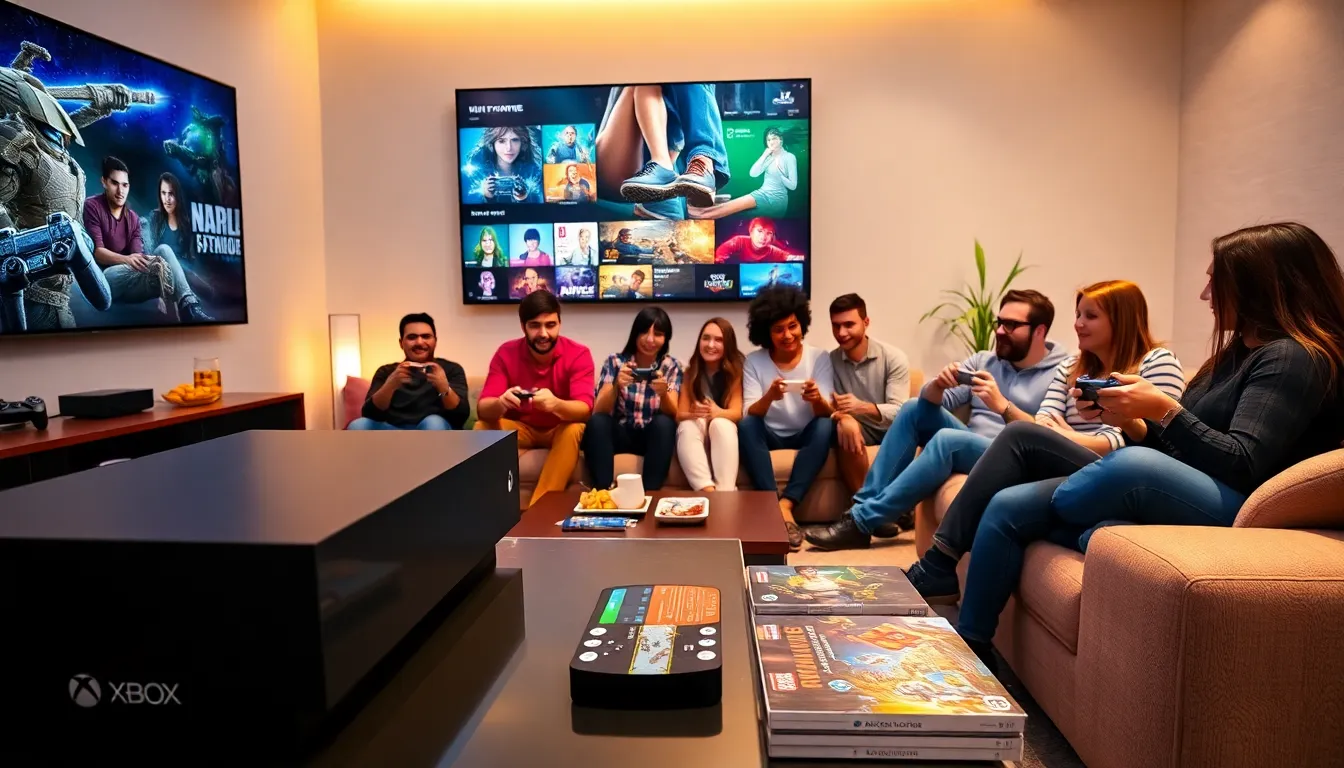Imagine this: it’s a Friday night, the snacks are ready, and everyone’s gathered in the living room. Suddenly, someone asks, “What are we playing tonight?” Well, if you’re still relying on a dusty old console or, heaven forbid, just your TV, it’s time for an upgrade. A gaming console for TV isn’t just a box: it’s the gateway to endless adventures. From captivating single-player quests to exhilarating multiplayer showdowns, picking the right gaming console can turn an average evening into an unforgettable experience. So grab your favorite beverage and jump into the world of gaming consoles.
Table of Contents
ToggleOverview of Gaming Consoles

When it comes to gaming consoles, there’s a delightful variety to choose from. The landscape has evolved tremendously, giving gamers numerous options suited to different play styles and preferences.
Types of Gaming Consoles
Generally, gaming consoles can be divided into three main categories:
- Home Consoles – Think Xbox, PlayStation, and Nintendo Switch, designed primarily for living room use.
- Handheld Consoles – These are portable marvels like the Nintendo Switch Lite, perfect for gaming on the go.
- Hybrid Consoles – A mix of home and handheld, allowing flexibility to game where you want. It shows how inclusivity in gaming has transformed the experience.
Each type has its charm and caters to different gaming preferences, so whether you want to game alone, with friends, or on a road trip, there’s something for everyone.
Specifications to Consider
As gamers venture into the console market, certain specifications become crucial in determining the best fit.
Connectivity Options
It’s essential to focus on connectivity capabilities. Console choices should ideally support features like HDMI, USB ports, and Wi-Fi. These elements contribute significantly to the gaming experience. Wi-Fi capability, for instance, allows for seamless downloads and online play, while HDMI ensures crystal-clear graphics.
Graphics and Performance
Next, graphics and performance should remain top of mind. Gamers today desire stunning visuals and smooth gameplay. Advanced models offer 4K capabilities, ensuring experiences are vibrant and lifelike. Frame rates can significantly affect gameplay: higher rates mean smoother experiences, this is non-negotiable when choosing a console.
User Interface and Experience
A fantastic gaming experience hinges not just on performance but also on user interface.
Game Library and Compatibility
Before committing to a console, examine its game library and compatibility. Are the beloved titles available? Elements like backward compatibility can be game-changers, allowing players to relive classic adventures. The ability to play old favorites while gaining access to new releases enhances the value of any console. People often overlook these elements, but they play a crucial role in shaping the overall experience.
Exclusive Titles and Services
Some consoles offer exclusive titles that can sway a decision, making them more attractive.
Price Comparison and Value
In reviewing options, analyzing exclusive offerings becomes vital. Titles that are only available on specific consoles can justify a higher price point. Also, subscription services like Xbox Game Pass and PlayStation Plus expand game access without very costly. By weighing costs against the games and services available, players can ensure they’re making a wise investment.
Future-Proofing Your Purchase
In a rapidly changing gaming world, future-proofing becomes essential. When making a console purchase, consider how long it’s expected to remain relevant.
Choosing models that promise upgrades and continued support, like regular software updates and new title releases, assures the console won’t quickly become obsolete. This proactive approach gives gamers peace of mind, allowing them to enjoy their investment for years to come.


